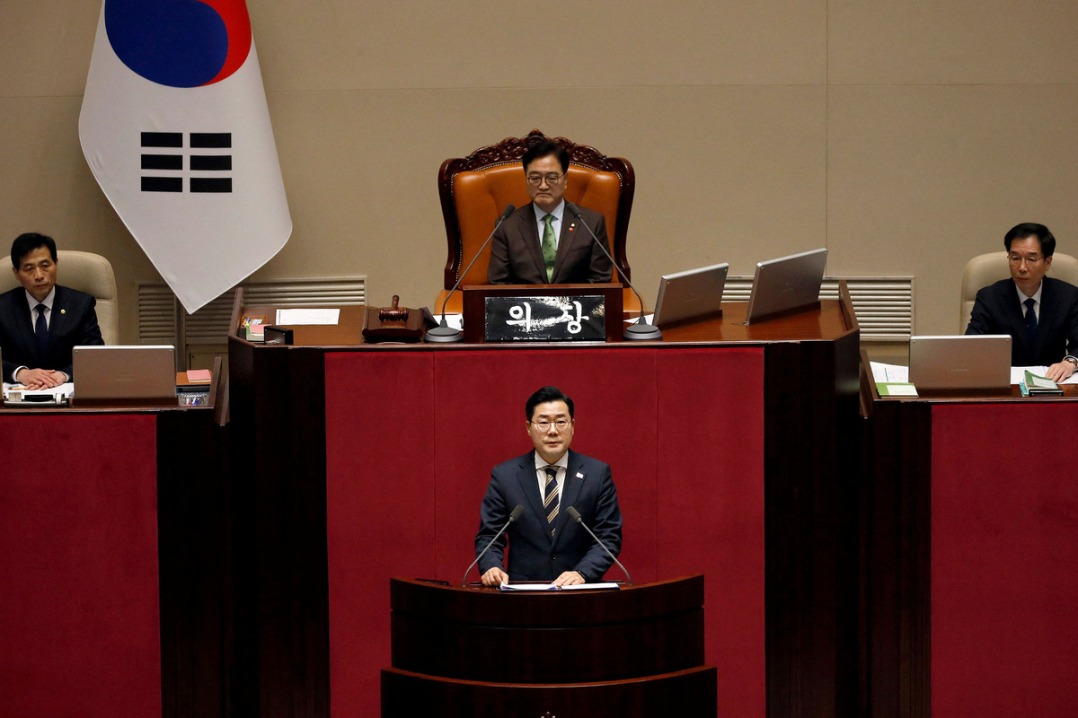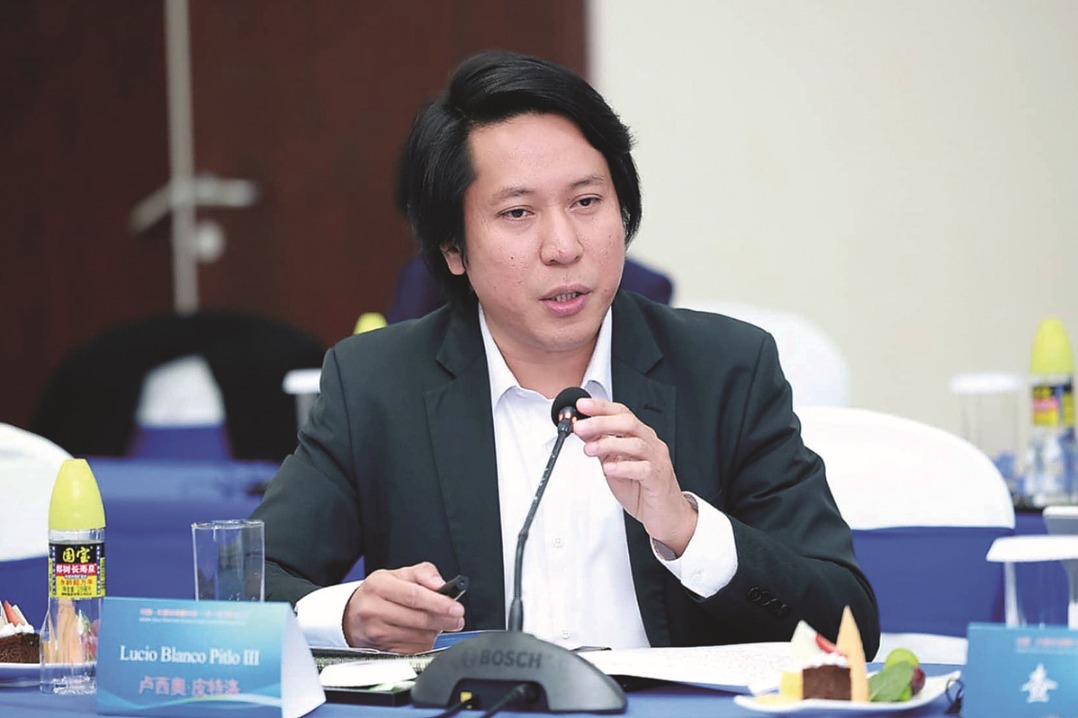Japan savors charm of embroidery Thangka art


She added that the exhibition provides an opportunity for people in both China and Japan to deepen their appreciation of this exceptional cultural heritage, strengthening cultural exchange and friendship between the two nations, and contributing to the preservation and promotion of humanity's shared cultural legacy.
In a video message, former Japanese prime minister Yukio Hatoyama highlighted the cultural significance of the Qinghai-Tibet Plateau, known as the "roof of the world," noting that its rich ethnic culture and history have significantly influenced Japan.
"I am confident that the magnificent worldview and cosmic vision expressed through embroidered thangkas, which embody the true power of culture, will resonate deeply with all attendees. Furthermore, I believe that cultural exchanges like this will serve as a foundation for peace in the future," Hatoyama said, expressing his hope for continued cultural exchange between China and Japan.
Kozo Akino, a member of the House of Councillors of Japan and former state minister of finance, emphasized the importance of mutual respect and trust in blending and sharing cultures.
"Embroidered thangkas make us Japanese reflect on what Japan truly is," Akino said.
He shared that he has paper mandalas at home, explaining that while such symbols may be inscribed on silk in China, they are written on paper with Chinese characters in Japan.
"Despite these differences, the intentions behind these symbols — the infinite potential of life and the pursuit of happiness — remain the same. I believe that recognizing this shared aspiration, even amid cultural differences, represents the true power of culture," Akino said.

































